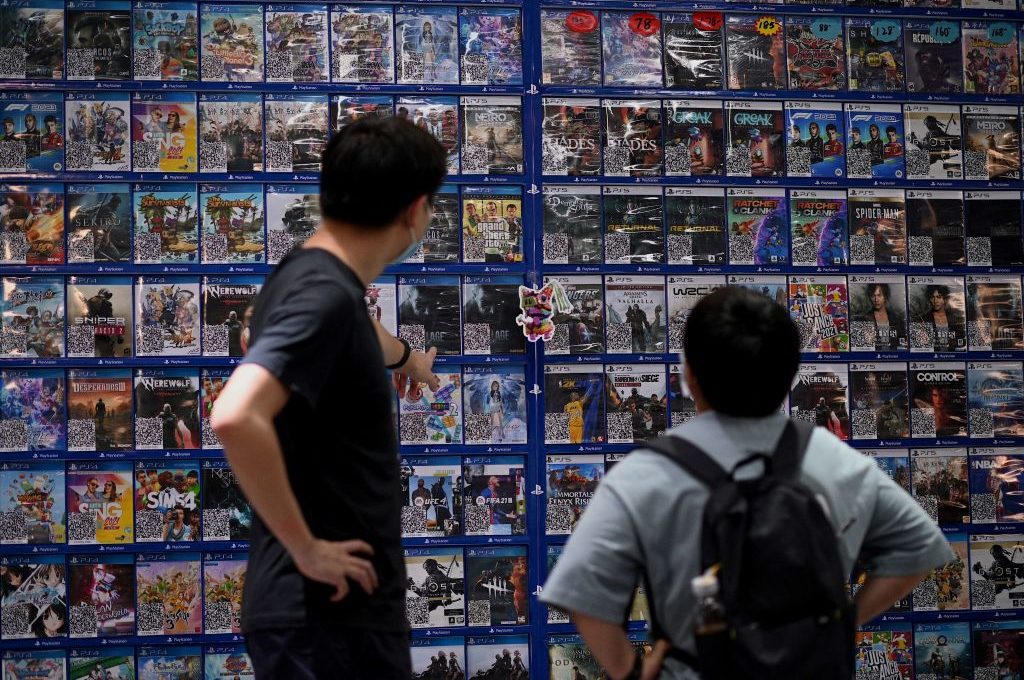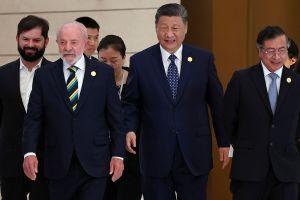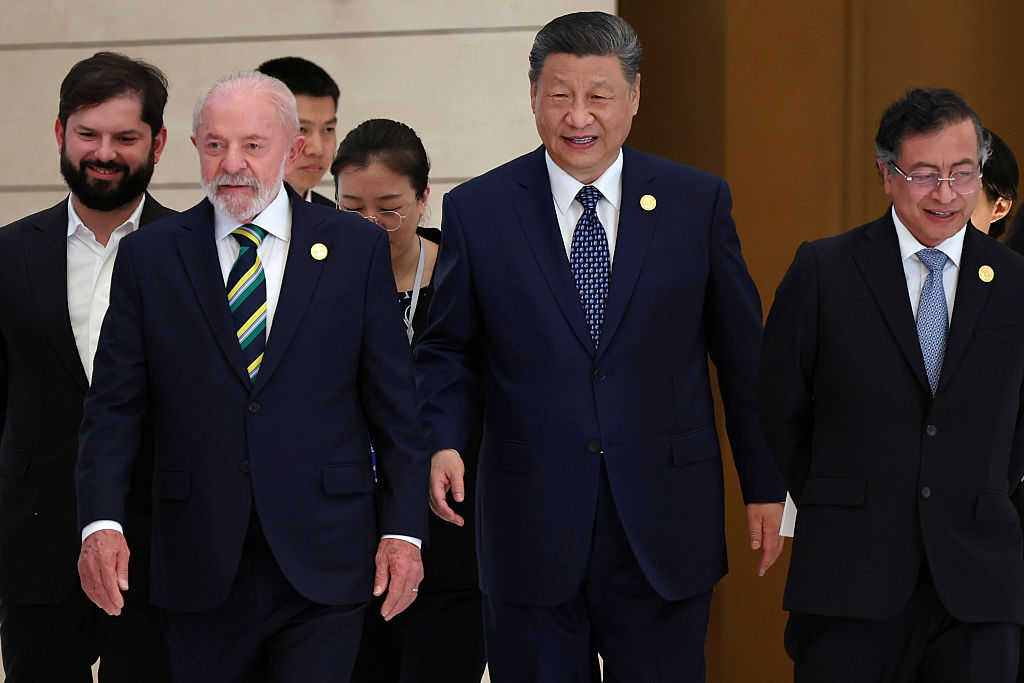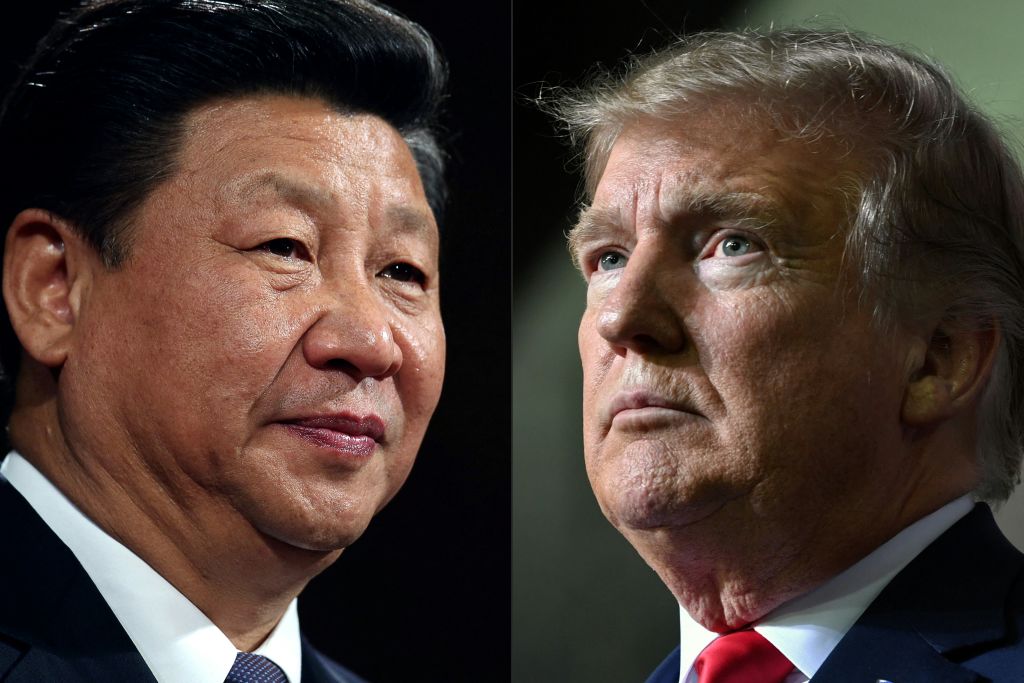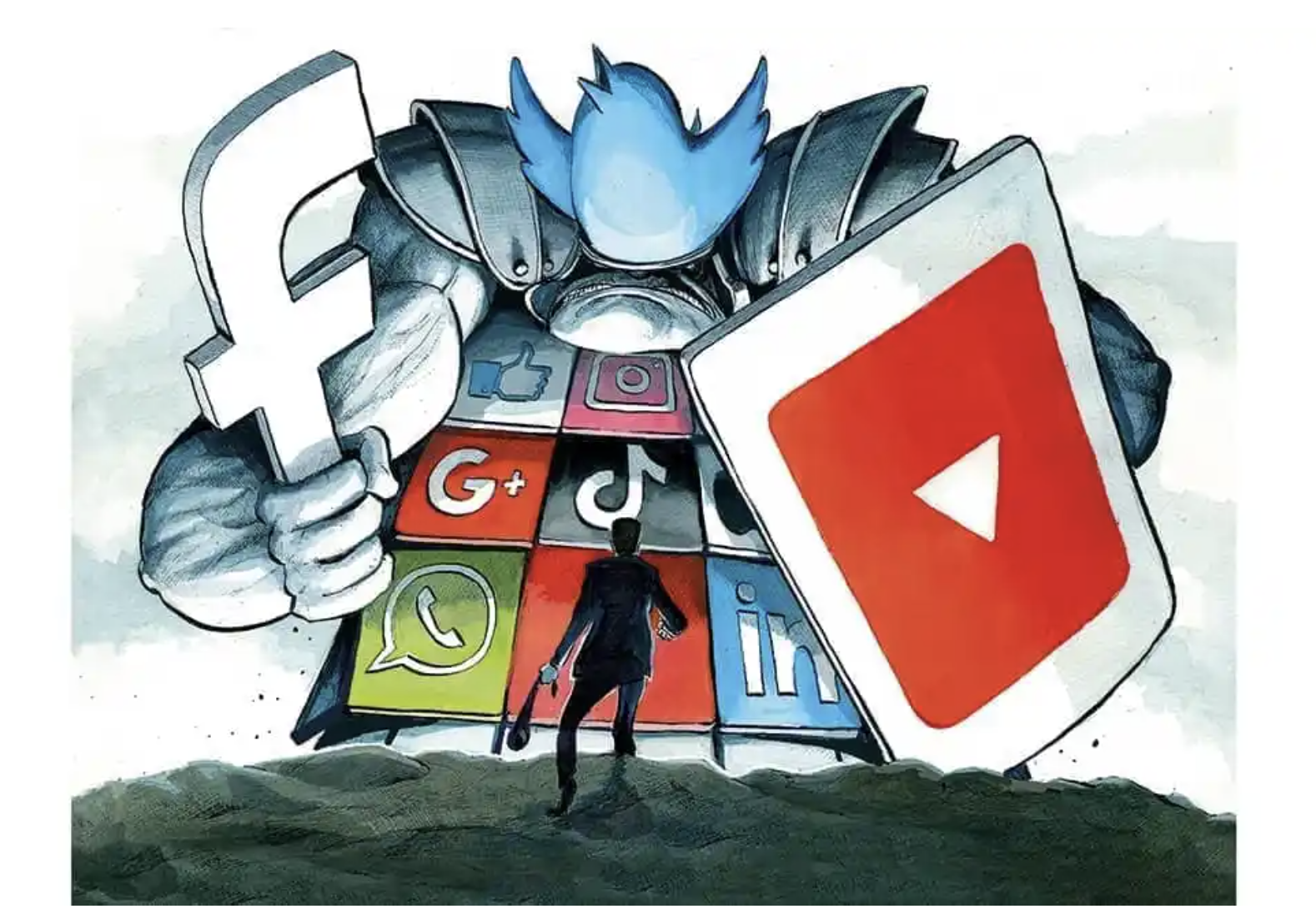When the Soviet Union still existed, visitors to Eastern Europe would smuggle illegal books and magazines to visitors. As the Chinese government announces that young people are to be banned from playing video games for more than three hours a week, it is tempting to imagine people sneaking copies of Call of Duty and Grand Theft Auto into the PRC — perhaps inside DVD cases of lavish propaganda films such as The Founding of a Republic.
OK, I’m aging myself here. I know most gamers now play online. I also know the Chinese are big fans. More than half the population enjoy gaming and China has the world’s most substantial market for games. Skeptical officials embraced the industry in recent years, seeing it as a means of income and projecting soft power, turning China into ‘the gaming capital of the world’.
Yet the pastime has also troubled the CCP. State media recently described gaming as ‘spiritual opium’ and Xi Jinping has made ‘video-game addiction’ a priority among the scourges he intends to address.
The state attempted to restrict minors to 90 minutes of video games per day in 2019. These new restrictions ramp up the severity, with only one hour of gaming on Friday, Saturday and Sunday permitted, and none from Monday through Thursday. Granted, I was allowed 30 minutes of Age of Empires a day, with more on special occasions such as when my rabbit died, but these measures are extremely tough, not least when they will be imposed through intrusive means like facial recognition software.
The spiritual health of the Chinese youth has been an important focus of CCP policy this year. Just last week the state cracked down on ‘fan culture’, removing celebrities from social-media platforms for being ‘inferior artists’ and insisting that accounts and fora be removed ‘if flame wars, rumor-mongering and personal abuse persist’.
In cold terms, you can see where the CCP are coming from. As China struggles to raise its historically low birth rate, and to imbue its young people with a robust nationalism, the CCP has no desire for kids to waste their youth on Minecraft or arguing about influencers. As tough as the measures are, even the staunchest of cold warriors will find it difficult to argue that limiting access to Honor of Kings is comparable to the Soviets exiling Solzhenitsyn.
But how will the kids feel about it? Well, how would your kids feel about it? I’m sure that Xi Jinping is thoroughly committed to the Skinnerian attitude that the children are wrong, but the important point is that trying to stop kids from gaming is not the same as doing it. The Chinese are smart, of course, but that applies to lawbreakers as well as to lawmakers.
Take pornography, which is banned in China. Again, I doubt even most liberals could honestly claim that among the multifarious victims of Chinese authoritarianism, pornographers are among the most sympathetic. But porn is undeniably seductive and Chinese people still find means of creating, disseminating and consuming it — on a smaller scale than if it was legal, doubtless, yet evidence suggests that two-thirds of young adults still access it.
You might suspect that young Chinese people will be more energetic in their efforts to access video games — perhaps because they are young and more oblivious to consequences, but also because the fact that their use is limited rather than prohibited indicates that the state considers gaming less problematic than porn.
A risk, for the government, is raising a generation of kids who have trained themselves in the art of the Polish people call kombinować: creative, mildly illegal scheming. Of course, we shouldn’t project Western images of adolescents onto Chinese teenagers. Chinese kids, considered broadly, are not seething rebels and are relatively patriotic and conservative. But try to stop young people doing the things that they enjoy — even if you proudly maintain that it is in their interests — and I believe whether they live in New York or Nanjing they will eventually find some means of disobeying you.
Maybe I’m wrong. The CCP at least has the advantage that young Chinese kids are seeing their living standards rise, in general, whereas a moralizing Western politician would be lecturing young people about productivity while also offering stagnant wages and soaring housing prices. Perhaps Chinese teenagers will focus on studying, reading, exercising and forming relationships, in which case it will be hard to defend the grand Western tradition of getting loaded on energy drinks and playing Fallout for 10 hours straight.
But I do not think that it is Eurocentric ‘cope’ to think that illiberal governments must beware of overreach, and of focusing on restriction at the expense of inspiration. It would be hysterical to think that limiting access to Happy Mahjong is going to provoke Tiananmen Square-esque protests that would give true meaning to the ironic slogan ‘gamers rise up’. But the CCP must still be careful about how and when it risks fostering resentment and casual criminality. No doubt the same is true of Western nations, where young kids are masked in school and young adults are all but locked in solitary confinement at university. But the Chinese have staked a lot on the national and ideological loyalty and ardor of the coming generations — it will be interesting to see if that can be sustained in the Information Age.
Anyway, I’m off to Beijing in a car loaded with Crouching Tiger, Hidden Dragon DVDs. Somewhere out there is a young man who yearns for the taste of freedom that only a battered copy of Grand Theft Auto: San Andreas can provide.



